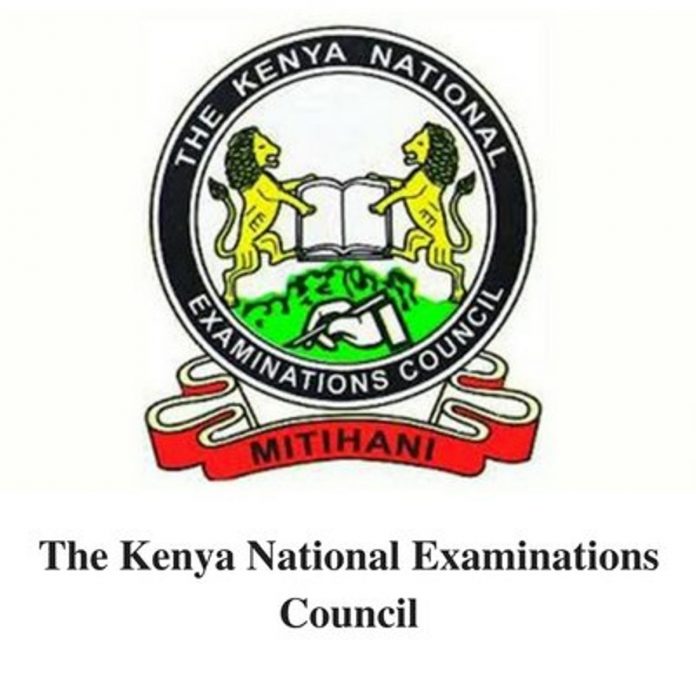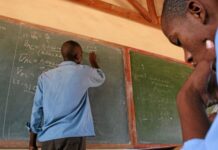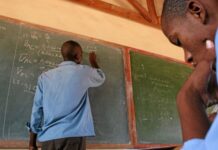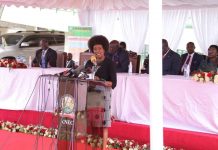
As the country embraces new education reforms in preparation for the transition next year, two separate sets of national examinations will be administered this year.
During the national tests to be administered in March and December, one group of candidates under the 8-4-4 education system will strive to get the most 100 per cent marks.
The other group of candidates, the pioneer Grade Six under the 2-6-3-3-3 education system, will attempt to increase their marks by 40% during their December exams.
The remaining 60% of the marks for the CBC pioneer class will have been awarded by teachers via school-based assessments administered in grades four, five, and six.
In March and December, the 8-4-4 candidates will take the Kenya Certificate of Primary Education (KCPE) and the Kenya Certificate of Secondary Education (KCSE).
The first 2021 KCPE examinations will be held between March 7 and 10, while Form Four candidates will take theirs between March 11 and April 1.
Class Eight candidates will take this year’s national examinations again in December, between November 28 and December 1. From December 1 to December 23, the second set of KCSE exams will be given.
The pioneer class of the Competency-Based Curriculum (CBC), now in Grade Five, will advance to Grade Six in April, the final primary education study year before transitioning to junior high schools (JSS).
The academic year for this year begins on April 25, with the first term lasting until July 1. The second term begins on July 11 and runs until September 16, while the final term runs from September 26 to November 25.
The Kenya National Examination Council (Knec) has yet to publish the examination schedule for Grade Six students. Education Cabinet Secretary George Magoha, on the other hand, stated that the tests will take place in December of this year.
Teachers in grades one through three are expected to conduct classroom and school-based assessments under CBC.
Knec is expected to develop standardized assessment tools that will be administered, scored, and feedback given to individual learners by teachers in their respective schools in Grade Three.
The schools will then submit the results for each learner to Knec in a specific format to facilitate analysis of competency achievement at the national level.
The national examiner’s report will guide transition Grade Four teachers and advise the Teachers Service Commission on developing content for continuous professional development.
Teachers use tools such as written tests, observation schedules, assessment rubrics, project portfolios, checklists, questionnaires, oral/aural questioning, anecdotal records, and journals across the school assessments.
School-based assessments in grades four, five, and six aid in informing mastery of competencies and learners’ readiness to transition, as well as providing feedback to stakeholders such as learners, parents, teachers in subsequent grades, and curriculum developers.
Knec Chief Executive David Njengere stated that the pioneer CBC students took school-based assessments, which will be computed to 60%.
“These learners sat assessments at Grade Four and Grade Five each constituting 20 marks. They will also sit another assessment at Grade Six for 20 marks. This cumulatively will be 60 marks,” he said.
End-of-primary-school-test candidates will account for only 40% of the total.
This means that, in addition to the school-based assessments this year, Grade Six students will take a national examination at the end of their primary school education in December.
The summative assessment is motivated by the need to provide learners from across the country with access to schools with superior infrastructure and a culture of high performance, thereby increasing equity.
Teachers will play an important role in administering and scoring the learners in the Competency-Based Assessments framework.
Knec is only expected to provide samples of new assessments, assessment tools, and related rubrics, as well as monitor administration and scoring to ensure credibility.
However, some educationists have expressed concern about the new powers teachers have been given to determine the future of children.
They contend that teachers may misuse their authority to propel some schools for commercial gain or to award fictitious grades that may be detrimental to a child’s development.
“We have seen teachers and even principals working hard to beat the security measures to leak the KCPE and KCSE examinations. If they can do this under the present tight circumstances where they even face jail terms and loss of jobs, what if they are in charge?” said Emmanuel Manyasa, Usawa Agenda executive director.
Njengere, on the other hand, stated that the assessment results submitted by teachers showed a normal curve.
He claimed that Knec has mechanisms in place to detect anomalies in teacher-awarded grades.











